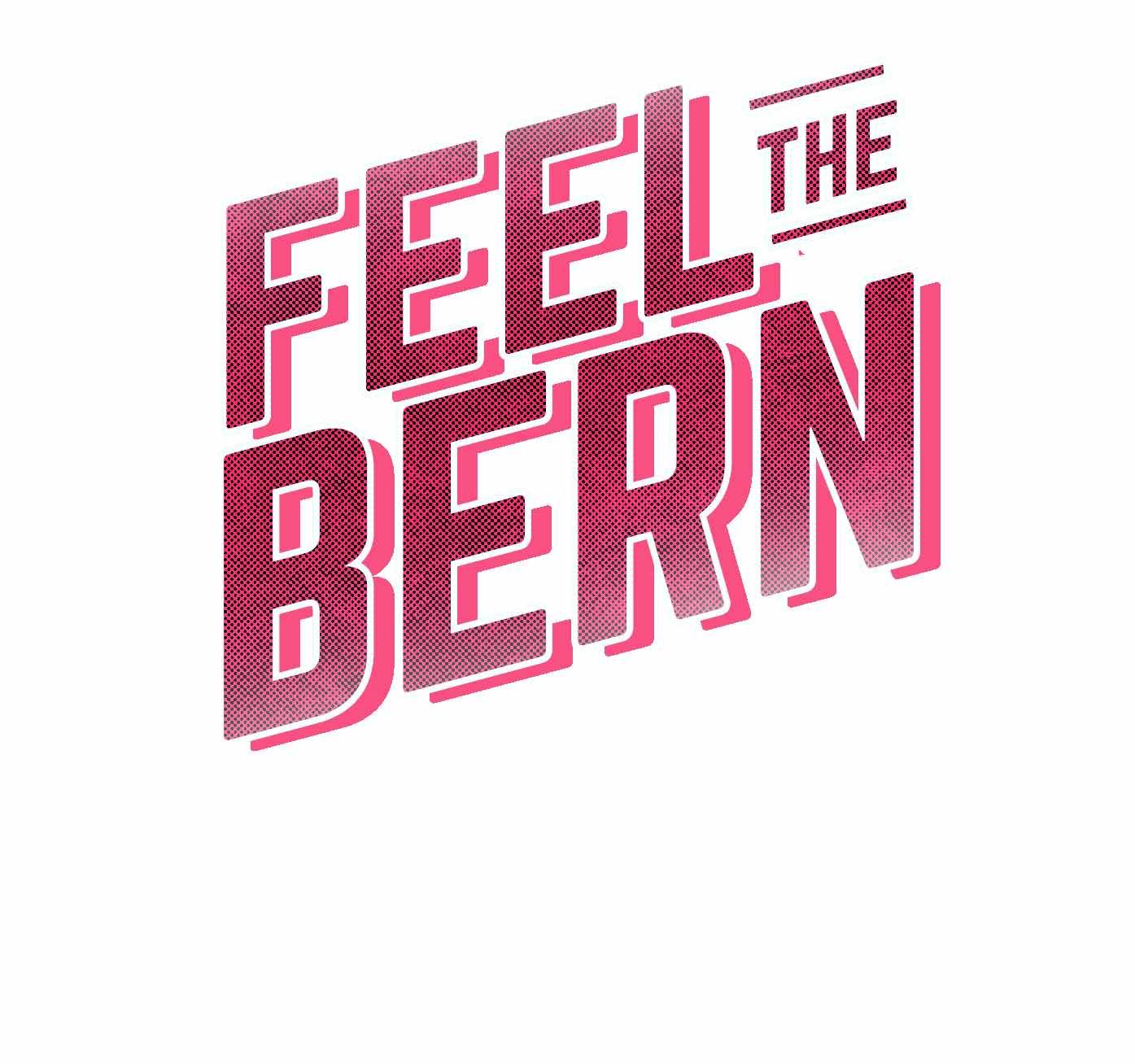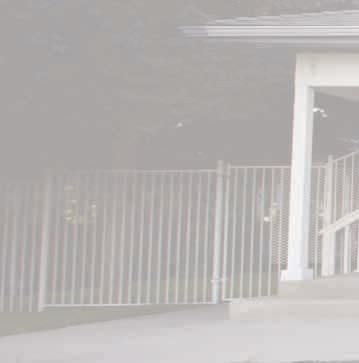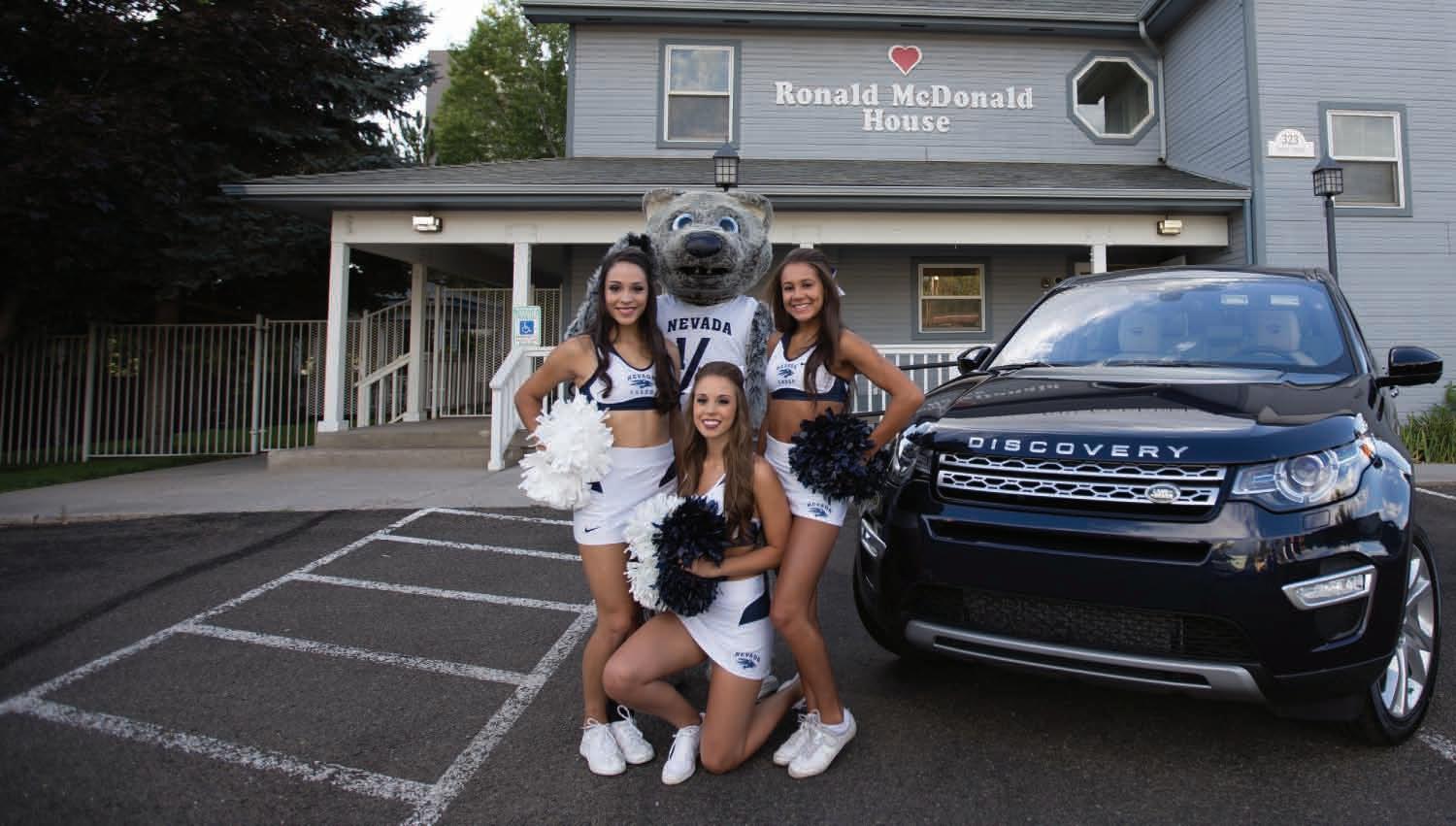
19 minute read
Feature
from Aug. 27, 2015
This story first appeared in Burlington, Vermont-based newsweekly Seven Days, which is chronicling Sen. Sanders’ political career from 1972 to the present at BernieBeat.com. Like Bernie Beat on Facebook for the latest on the campaign, or follow Bernie Beat on Twitter. ernie Sanders became impossible to ignore this
Bsummer. On July 1, as 10,000 people cheered and chanted his name, the 73-year-old U.S. senator from Vermont stepped onto a stage in a Madison, Wisconsin, arena and took his place behind a wooden podium. He raised his right arm to wave at a sea of supporters and embraced his wife, Jane, with his left. Then, peering up at the distant nosebleed seats, Sanders did something unusual: He grinned. “Whoa,” he said.
Advertisement
By Paul Heintz Vermont Sen. Bernie Sanders is drawing the biggest crowds, but does he have a shot at the White House?

Whoa, indeed.
In the 43 years since Sanders first ran for office, skeptics have doubted him at every turn. They never believed he could serve as mayor, defeat an incumbent congressman or chair a senate committee. Well before he entered the presidential race in April, Beltway pundits had long since written him off as an also-ran—a latter-day Dennis Kucinich.
But by the time Sanders arrived in Madison at the start of a three-state, four-day tour of the Midwest, CNN had declared it the “summer of Sanders.”
By the time he departed, new polls and fundraising reports showed him gaining on Democratic front-runner Hillary Clinton. And in perhaps the clearest validation, reporters who’d been asking Sanders about Clinton in every last interview started asking Clinton about Sanders.
At Wisconsin’s Veterans Memorial Coliseum, the senator let loose a few more “whoas” as he scanned the crowd of mostly white faces holding blue and white “Bernie” signs.
“In case you haven’t noticed,” he said, “there are a lot of people here.” He grinned again.
But Sanders’ smile quickly faded. As he launched into an hour-long stump speech, any hint of optimism was supplanted by his dour assessment of modern America.
The economy, he said, was rigged by greedy billionaires more interested in tax breaks than in feeding hungry children. Republicans held a “warped view of family values” and had “gotten away with murder for too many years.” His opponents would exploit a corrupt political system to defeat him, while a shallow news media treated the democratic process like a popularity contest.
“The greed of corporate America and the billionaire class has got to end, and we are going to end it for them!” he shouted.
“Ber-nie! Ber-nie! Ber-nie!” the crowd chanted.
No matter how Sanders fares in the nation’s never-ending presidential tryouts, this was the moment his campaign became real. No candidate to date had attracted so many supporters under one roof, as the senator himself triumphantly observed.
But with success comes scrutiny. A super PAC allied with third-place Democratic rival Martin O’Malley, the former Maryland governor, had already trained its sights on Sanders, airing a negative television ad focused on the Vermonter’s mixed record on gun control. And now that Sanders has gotten Clinton’s attention, he’s sure to face incoming fire from perhaps the most formidable campaign apparatus ever assembled by a nonincumbent presidential candidate.
But Sanders, a former long-distance runner, has been training for this race all his life. His sneakers are laced—and he’s ready to run. • • •
Sanders should’ve been pleased the next day when he reached Fort Dodge, Iowa—a 25,000-person town with an economy based on corn and gypsum. This was, after all, one of the most successful weeks of his three-and-a-half decades in office.
After filling the Madison arena the night before, he had lured 600 people to a breakfast speech that morning in Rochester, Minnesota. Hours earlier, Quinnipiac University had released a new poll showing that he’d more than doubled his support in Iowa in the previous month, from 15 to 33 percent. And his own campaign had announced he’d raised an impressive $15 million in his first two months in the race.
Despite the good news, the senator sounded like he had an ax to grind. He repeatedly ripped into the news media that afternoon during an 80-minute town hall meeting in an auditorium at Iowa Central Community College.
“The media regards politics as either a baseball game or a soap opera,” he said.
Yet the most recent coverage of his ascendant campaign has been fawning and uncritical. The national political media has appeared eager to replace the tired storyline of Clintonian dominance. But Sanders surely understands the cyclical nature of a long presidential nominating contest, and he knows that what goes up must come down.
As Sanders has drawn more and more fans to rallies in Minneapolis, Denver, Portland, Maine, and Reno (see sidebar) skeptics question whether such support exists outside the nation’s liberal metropolises.
But in the three days Sanders spent crisscrossing the corn belt of rural, western Iowa, excitement was palpable even in the tiniest burgs. When he drove two hours due west from Fort Dodge to Sioux City, the candidate found more than 400 people waiting to see him at Morningside College, a small, liberal arts institution affiliated with the United Methodist Church.
Introducing him that evening was a graduate student named James Johansen, who praised Sanders for daring “to stand up for the LGBT community” decades earlier, when “it was neither safe nor required for him to do.
“As a gay man myself who was recently married, I do not take that kind of courage lightly,” he said.
Sanders’ Iowan supporters frequently describe him as consistent and authentic— particularly in comparison to Clinton, who they see as opportunistic and scripted.
“He seems to be honest and believable,” Steve Harding, a South Dakotan retiree, said outside Morningside College. “He’s a breath of fresh air.”
Inside, Sanders delivered a harsh indictment of conservative social beliefs.
“When the Republicans talk about family values, what they say is that a woman in America should not have the right to control her own body. I strongly disagree.”
Republicans, he continued, “are saying that women are not mature enough to be able to go out and buy the contraceptives they need” and that “same-sex marriage should not be allowed to happen. That is their view of family values.”
Sanders said his idea of family values was to guarantee 12 weeks of paid family and medical leave.
In each of his appearances, that sizzling slice of red meat draws some of the loudest applause. But later in his stump speech, Sanders routinely contradicts himself, arguing that Americans must not let social issues divide them at the expense of economic ones.
“In a democracy, people are going to have different points of view,” he said as he wrapped up his speech at Morningside College. “Yes, we may disagree on abortion. Yes, we may disagree on gay rights. Yes,
we may disagree on guns. Yes, we may disagree on this issue or on that issue. But do not get deflected from the most important issues facing you, your kids and your parents.”
In his four days of rallies, town meetings, and parades, Sanders addressed foreign policy just twice—and only when audience members raised it themselves.
“You haven’t mentioned the Middle East yet,” one woman observed near the end of the question-and-answer period in Sioux City.
Sanders approaches foreign policy much the way he does economic policy. The wealthiest nations, he argues, must pay their fair share.
His general philosophy—the United States ought to avoid unilateral military engagement whenever possible—mirrors that of many Democratic primary voters. And he’s wise to contrast his opposition to the Iraq War with Clinton’s support for it. But when Sanders faces the former secretary of state on a debate stage this fall, he’ll likely face tougher questions than “Is ISIS bad?”—and he’ll have to answer them. • • •
As in much of western Iowa, the Latino population has grown significantly in recent years, as immigrants have found work on farms and in processing plants. In Denison, 50 miles south, more than two-fifths of the population is Latino.
But when Sanders arrived in Denison later that afternoon to march in its July 3 Independence Day parade, the preponderance of those participating in and observing the festivities were white.
Sanders, who appears to abhor unscripted moments with rabid supporters, milled around awkwardly outside the United
Food and Commercial Workers Local 440 union hall, gamely posing for photos and hopping aboard a vintage John Deere tractor. He kept asking field director Phil Fiermonte for direction, but he didn’t receive any.
“Will you sign the back of my shirt?” asked Peggy Galletley of Lake City.
After assenting to the request, Sanders remarked, “When you’re running for president, you’re asked to do weird things.”
As he waited for the parade to begin, the candidate briefly too questions from local reporters. Lorena López, editor of the Spanish-language newspaper La Prensa, based in western Iowa, was one of them.
“This town is 43.8 [percent] Latino, and it’s a small town,” she said. “Latinos trust in President Obama. Latinos talk a lot today about you. What do you have to offer Latinos?”
Sanders, who has faced criticism from some Latino leaders for failing to focus on their issues, dove right in.
“Well, we are going to fight as hard as we can to pass comprehensive immigration reform,” he said. “The bottom line is we have 11 million undocumented workers in this country, and they deserve a path to citizenship, and I believe that very strongly.”
Then he shifted to more comfortable territory: “When we look at economics in America, what we find is that Latinos and African-Americans are often at the bottom of the line in terms of decent paying jobs and other aspects of our economy.” For that reason, he argued, providing free college tuition and raising the minimum wage would help Latinos more than most.
When Sanders announced two-and-ahalf months ago that he was running for president, he had just one person on the campaign payroll. “I think it’s fair to say that we did not anticipate the speed with which these large crowds of people would come to the campaign,” said Sanders campaign manager Jeff Weaver. “So it’s been a bit of a challenge, but it’s better than the opposite challenge.”
To the untrained eye, Sanders’ Iowa operation, which includes 27 of the campaign’s now 50 staffers, appeared surprisingly organized.
Volunteers and paid staffers swarmed every event, signing in audience members, handing out envelopes for donations, and marching beside Sanders in parades. Even after he reached the end of the Denison route, many Sanders volunteers kept working the crowd.
Clayton Christiansen, a Nebraska City property manager and newly minted volunteer, walked 16th Street, attempting to engage with residents. “Are you familiar with Bernie Sanders?” he asked an older couple and a younger woman sitting together on a porch.
The older man looked annoyed by the intrusion but offered, “We hope he beats Hillary.”
“We do, too!” Christiansen replied with a smile.
• • •
That night, more than 80 Sanders volunteers stalked the entrances to Council Bluffs’ Mid-America Center, 65 miles southeast, as some 2,600 people streamed in. The volunteers would not let audience members pass without extracting their contact information.
“Signing people in is the key,” explained Pete D’Alessandro, a veteran of the Iowa caucuses and Sanders’ state coordinator. “You’ve gotta grab the names, because 2,600 people in a venue is exciting, and it’s energizing and it helps, but you need to grab the actual names of the people who are going to volunteer, who are going to caucus.”
Clinton supporters have suggested that Sanders’ venue-busting hordes won’t necessarily translate to votes.
“Bernie’s huge crowds recall Howard Dean’s in ’04 when he rallied ’Democratic wing of the Democratic Party,’” former Obama consigliere David Axelrod wrote on

So far, no candidate draws bigger crowds than Sanders.


Free speech Free speech by Dennis Myers
Most of the crowd at Bernie Sanders’ Aug. 18 Reno speech was made up of the already converted, but not entirely.
Bill Taggard retired as a Portland electrician, moved to New Mexico—his wife has trouble with the climate in Portland—then moved to Reno to be nearer to Portland when grandchildren started arriving. He said he has followed Sanders for years and just wanted to hear his message in person.
“He’s talking about all the right stuff,” Taggard said. “He’s talking about how corporations are getting way too big, our country needs infrastructure, money’s going in the wrong direction, too much inequality. So yes, I hope to hear some of that.”
One the other hand, Lori—an office worker who declined to give a last name—didn’t know enough about Sanders yet.
“I’m really interested to hear what he has to say,” she said. “I want to know more about him as a candidate.”
So she hasn’t decided on him yet? “No.”
What is she looking for in a candidate?
“Someone who wants to really address the issue of climate change … because I think it is a tremendously important issue. Especially for future generations, it need to be addressed very energetically. It needs to be top priority, I guess.”
Sanders’ positions and voting record have already cut him off from the kind of lobby and corporate money other major candidates get, so he is free to say anything he wants. He uses that freedom fully, knowing there’s no way he gets big money except, perhaps, from the National Rifle Association. (He is that rare leftie, a gun fan.) So his words, not the way they were delivered, carried a punch with this crowd. He was saying things they have hungered to hear. More than once the crowd interrupted his speech with “Ber-nie, Ber-nie” chants.
Sanders called for a business climate that aids small- and medium-sized companies. But bigness is one of his principal targets. He recalled the claim during the Wall Street meltdown that huge financial corporations had become so big they could not be allowed to fail because they might take the nation down with them—yet they were allowed to get even bigger after the meltdown.
“What we have got to tell Wall Street right now is that if a financial institution is too big to fail, it is too big to exist,” Sanders said, eliciting wild cheers.
Two days later, U.S. Sen. Harry Reid said breaking up the large financial institutions might be worth looking at, but Democrats in Congress are basically not allowed to legislate under the current GOP majority.
When Sanders said he wanted to make sure the planet’s climate is cared for, a small smile appeared on Lori’s lips.

Help us keep families together at the 4th Annual Red Shoe Gala and WIN A LAND ROVER DISCOVERY SPORT

Join us at this yearʼs Red Shoe Gala as we pull the winning raffle ticket for a Wolf Pack themed Discovery Gala ShoeRed The 4th Annual Gala ShoeRed the 4th Annual Sport and raise money to give children in the hospital what they want most: their families.

PHOTO/DENNIS MYERS
Walled in by people, presidential candidate Bernie Sanders, lower left, spoke on the UNR campus.
Make Someone Happy! October 2, 2015
www.rmhc-reno.org

Ticket proceeds benefit the Nevada Wolf Pack and the Reno Ronald McDonald House®. Get yours at
www.landroverreno.com

Twitter the morning after the Madison rally. “Dean was impactful, but Kerry won.”
Devine, Sanders’ consultant, disagrees.
“No. 1, by getting these people in-house, by having them attend your events, you can ID them, get contact info and become part of their social networks,” said Devine, a veteran of John Kerry’s and Al Gore’s campaigns. “No. 2, I think momentum is something that builds in a campaign, and by demonstrating to people that there’s real momentum in a place like Madison, Wisconsin, I think it generates excitement in Iowa.”
Since Sanders supporter Neil Young called out Donald Trump for playing “Rockin’ in the Free World” at his campaign launch, the song has warmed up the crowd at most Sanders rallies. By the time it blared across the room, every seat in the Mid-America Center was filled.
The crowd was younger than at events elsewhere in Iowa, perhaps because it was taking place just across the Missouri River from Omaha, a major college town. Cory Journey, a 20-year-old college student, said he and three friends had traveled 45 minutes from Lincoln, Nebraska, to hear Sanders speak. He said he’d learned about the event through Facebook.
After a self-identified transgender woman introduced Sanders, the senator took the stage and uttered words that have come to sound familiar.
“This is by far the largest meeting we have done in the state of Iowa,” he said to a roaring crowd. “Let me begin by telling you something I think other candidates will not do. That is, basically, the truth.”
And he was off.
Hours before Sanders packed the Mid-America Center, 850 people turned out to see Clinton in Hanover, N.H., a liberal hub key to any Democratic candidate. The former secretary of state seemed to have Sanders in mind when she proclaimed in an outdoor speech at Dartmouth College, “I take a backseat to no one when you look at my record in standing up and fighting for progressive values.” Asked specifically about Sanders later that day at the Dairy Twirl in Lebanon, New Hampshire, Clinton said she “always knew this was going to be competitive.”
The next day, Clinton was pilloried in the press when two campaign staffers pulled out a rope at a Gorham parade and literally dragged along reporters who came too close to the candidate. Though the incident was surely overblown, it neatly illustrated the frustration national reporters feel about a candidate who has largely avoided the press. • • •
Often the biggest hit at parades in Vermont, in Iowa Sanders attracted more than a few raised eyebrows from Union County residents who lined the streets of Creston.
“Hey! Socialism doesn’t work, buddy!” one man yelled as the senator marched by. “Give it up!”
Sanders looked straight at him, then looked away, his tight smile unchanged.
Most Crestonians appeared more bemused than offended by Sanders’ presence in the parade—and some seemed downright appreciative that he’d taken the time to visit this small town, population 7,887. As Sanders passed a parking lot in which two Confederate flag-adorned pickup trucks were parked, Creston High School band director Mike Peters jogged up to Sanders to ask for a photo. The senator complied.
“Ever since I’ve seen this gentleman on Bill Maher … I’ve started identifying with the things that he likes to do,” Peters said. “He has a vision for what this country needs at this point.”
Later that day, the senator marched in one final parade—in the Des Moines suburb of Waukee. Thanks to Waukee’s close proximity to the state capital, the Sanders campaign managed to turn out an astounding 130 people to walk with him.
David Leonard was not one of them. The retired high school counselor, decked out in a purple Dallas County Democrats T-shirt, said that he “loves Bernie Sanders.” But he doesn’t plan to vote for him.
“I agree with everything he stands for, but I’ll probably end up caucusing for Hillary Clinton, because it’s high time we had a woman president. For another thing, she’s highly qualified—perhaps the most qualified. And I think she will beat any Republican they put up against her,” Leonard said.
“Whereas with Bernie, they’re going to throw the socialist label at him,” he said. “And there will be closet talk of his being a Jew. I don’t think he could be elected.”
Sanders’ fired-up fan club clearly felt otherwise. As he marched past the town green and a skyscraper of a grain elevator, they hoisted signs reading “Iowa Bern Stormers” and “End the Corporate Oligarchy.” Several young men wore signs on their backs that said “Bern Unit.”
A young boy in a purple shirt led the pack of Sanders supporters and every few minutes yelled, “When I say ’president,’ you say Bern!’”
“President!”
“Bern!”
Sanders, who argues vociferously in his stump speech against the deification of politicians, mostly ignored the mob at his heels. He focused instead on greeting and shaking hands with those who appeared receptive.
“Hi. Hello,” he said. “Hi. Hello. Bernie Sanders. Hi. Hello.”
This was a friendlier crowd than in Creston.
“That’s actually him,” one woman whispered.
“Thanks for coming to Waukee,” another shouted.
By the time he reached Waukee High School, a mile-and-a-half later under a hot sun, the former runner was definitely feeling the burn.
“Oh, my God!” a red-faced and sweaty Sanders exclaimed to his wife.
Whether he was referring to the unending parade route or the number of supporters willing to follow him wasn’t quite clear. But for the first time since he addressed the crowd in Madison, he displayed visible signs of happiness.
“That was fantastic,” he said. This story first appeared in Burlington, Vermont-based newsweekly Seven Days, which is chronicling Sen. Sanders’ political career from 1972 to the present at BernieBeat. com. Like Bernie Beat on Facebook for the latest on the campaign, or follow Bernie Beat on Twitter. Ω


INTRODUCING THE ALL NEW NTRODUCING THE ALL NEW NTRODUCING THE ALL NEWIN I
ONE INCREDIBLE EVENING WITH VINCE GILL
AUGUST 29






SEPT 7
THOMAS JACK
SEPT 8


5 GRANDSIERRARESORT.COM | 775-789-2000 | COM | 7757892000 |














